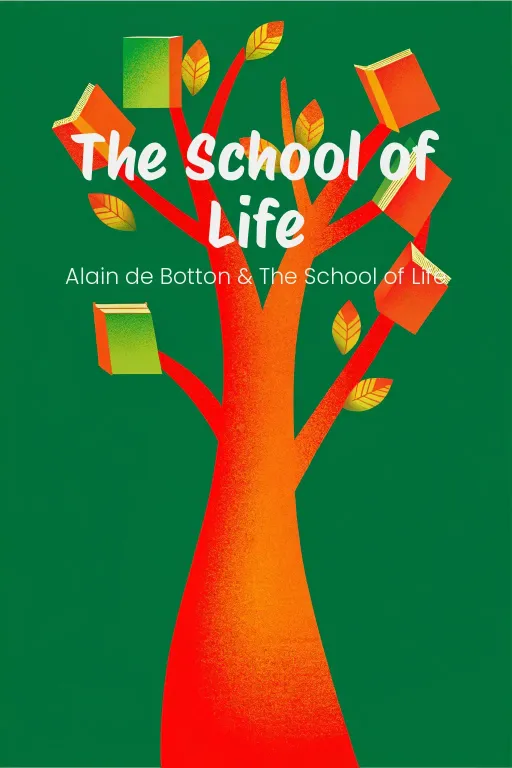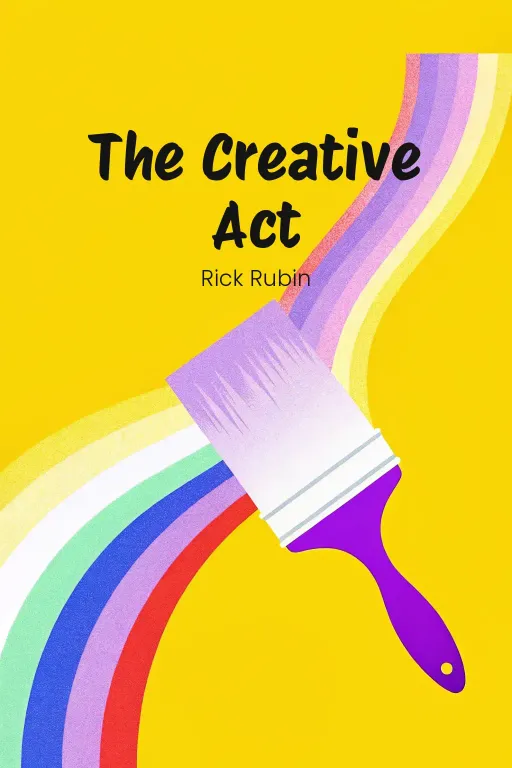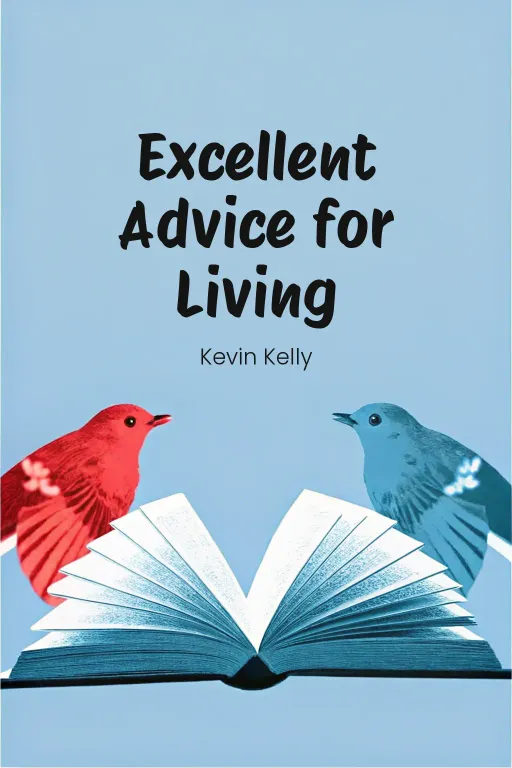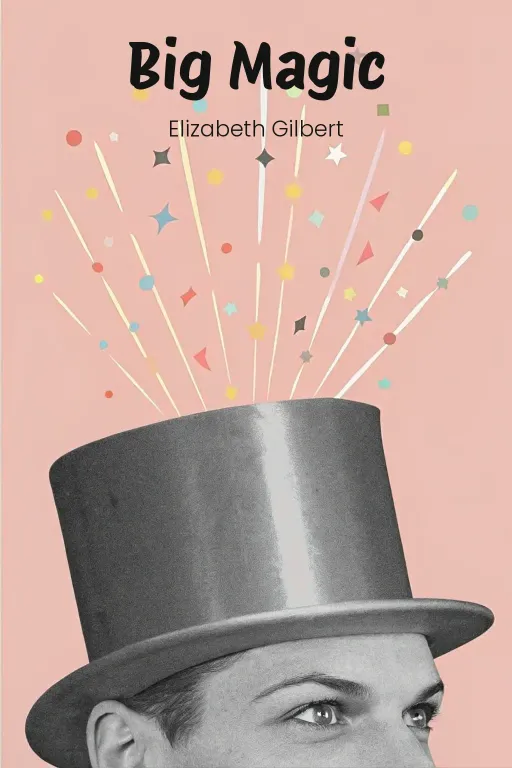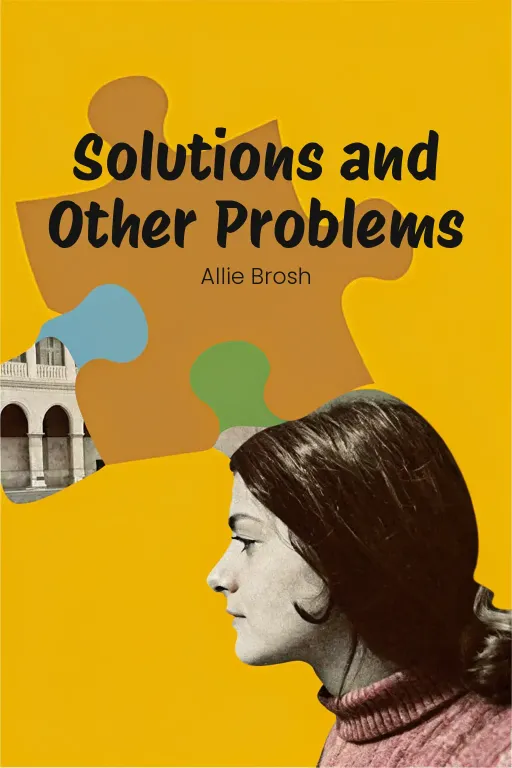
Own Your Feelings: Master Your Life
Podcast by Beta You with Alex and Michelle
An Emotional Education
Introduction
Part 1
Alex: Hey everyone, welcome to the show! Today we're tackling what I think is a seriously underrated skill: emotional intelligence. I mean, how much time do we really spend trying to understand ourselves and others, you know, compared to learning something like coding? And yet, isn't navigating our emotions one of the biggest challenges we face? Michelle: You're spot on, Alex. They never gave me a manual for dealing with heartbreak, nightmare bosses, or those 3 AM existential crises. But hey, at least I know how to balance a checkbook – which, newsflash, hasn't exactly unlocked all the secrets of human connection. Alex: Exactly! That's where the book, The School of Life: An Emotional Education, comes in. I think it's more than just another self-help guide; it’s a powerful call to action to reclaim emotional maturity as a key skill. The book questions why we're so focused on technical skills, arguing that we don't value emotional development nearly enough, even though it massively affects our happiness, relationships, and even our culture. Michelle: Yeah, and it dives into the big stuff – love, success, fulfillment – all while looking at what it really means to be human. Spoiler alert: the answer isn’t just binging Netflix and having a fancy office. Alex: Precisely. So, here's what we're going to do today: We'll explore the power of emotional intelligence through three different viewpoints. First, we'll look at how it forms our self-awareness and inner world. Think of it like holding up a mirror so we can better understand what we feel and why. Michelle: Then, we'll zoom out to our relationships – romantic, family, work – you name it. News flash: being emotionally intelligent doesn't just mean you're a better partner or coworker, it might actually save us from those painfully awkward holiday dinners. Alex: Finally, we’ll try to see the bigger picture: How would society change if we actually made emotional education a priority? Imagine a world where empathy was as celebrated as innovation. It sounds ambitious, but I think it’s becoming more important than ever. Michelle: So, stick around while we unravel the threads connecting all of this together. What makes us tick, connect, and maybe even dream a little bigger? It all starts right here.
Emotional Intelligence
Part 2
Alex: So, let's dive in, shall we? Self-awareness. It's basically the cornerstone of emotional intelligence, and for good reason, too. If you can't pinpoint what you're feeling or the reasons behind your actions, you're pretty much running on autopilot, emotionally speaking. The School of Life calls it a kind of self-blindness, which, you know, leads to all sorts of unintended consequences. Michelle: Right, like, you snap at someone because you're actually ticked off at yourself. Classic case of misplaced anger, isn't it? But Alex, why is developing self-awareness so difficult? Shouldn't we, well, know ourselves by now? Alex: You'd think so, wouldn't you? However, self-awareness often involves peeling back layers of learned behaviors, childhood patterns, societal norms, you name it. Many of us are taught to suppress emotions rather than actually explore them. Instead of asking "Why am I angry?" we immediately act on it—or bury it. Reflection, which the book emphasizes, it helps break that cycle, you see. Michelle: Reflective journaling? I struggle to keep up with emails. Is that even realistic for most people? Alex: It's not just journaling, Michelle. Reflection just means taking a moment to, I don't know, check in with the emotional undercurrent of your day. It could be as simple as asking yourself, "What's this feeling trying to tell me?" Take that high-achieving professional from the book, for instance. Someone who's crushing it at work but feels totally stuck in their personal life. Why? Because they define success by tasks—ticking boxes—instead of looking at their own emotional landscape. Michelle: Right, they don't see the irony that their biggest bottleneck isn’t technical; it's emotional. Like that team lead who can solve coding bugs in their sleep but freezes when their spouse just wants them to listen. What’s the prescription here? How do they hit that emotional reset button? Alex: Well, the breakthrough, as the book suggests, often comes when people realize that relationships require just as much effort as their careers. For our software engineer friend, it might mean acknowledging feelings of vulnerability rather than ignoring them. That vulnerability—whether it's fear of failure, fear of rejection—that's critical for building genuine connections. Michelle: And that leads us neatly into the second lens: relationships. I love how The School of Life points out that relationships can turn into battlegrounds of misunderstanding if we lack empathy. Like that example of the couple misinterpreting each other's signals. Alex: Oh, that's such a powerful case study. One partner's fatigue is misread as emotional withdrawal. Instead of asking, "What's going on with you?" the other partner might project insecurity: "You don't care about me anymore." It's a perfect storm of assumptions and unspoken emotions. Michelle: And then the resentment snowball starts rolling downhill. Look, emotions can feel messy, inconvenient, I get it. But empathy? Now, that's the game changer. Asking, "What's really going on here?" instead of immediately getting outraged. Alex: Exactly. Empathy isn't about agreeing with someone. It's about seeing the emotion behind their words or actions. In this case, realizing that the fatigue isn't about the relationship at all, but maybe just a tough day at work. That's emotional intelligence in action, isn't it? Staying curious instead of defensive. Michelle: It's also about timing, right? Let's be honest; no one's having a heart-to-heart in the middle of, you know, metaphorical traffic. Sometimes, the emotionally intelligent thing to do is just wait for a better moment to connect. Alex: And recognizing that emotional intelligence doesn't mean suppressing your own feelings, either. It's actually about balancing them with empathy. If you're upset, you still deserve to express that, but in a way that fosters connection rather than conflict. Michelle: So, we've covered self-awareness and relationships, two big pillars of emotional intelligence. Let's tackle the societal angle, because this is where things get really interesting. This idea that whole communities can benefit when emotional literacy takes center stage? It almost feels utopian. Alex: It does feel ambitious, but it's not impossible. Think about workplaces with low emotional IQ. They often breed tension, miscommunication, and burnout. Now flip the script: imagine leaders actively modeling empathy and self-regulation. They'd set a tone that encourages collaboration instead of competition or blame. Michelle: How would you scale emotional intelligence from an individual skill to a collective value system? I mean, teaching empathy to a room full of executives sounds like, I don’t know, teaching a tiger table manners. Alex: It starts with structural change. Look at emotional literacy programs already being integrated into schools. They teach children how to name and process emotions early on, which lays a foundation for adulthood. Now imagine a parallel system in the workplace: peer-coaching groups, team empathy exercises, even informal emotional check-ins before meetings! Michelle: Emotional check-ins at work? Bold move. Though, I guess it's less awkward than the forced trust falls of corporate retreats. Alex: It's about normalizing emotional expression. When leaders validate emotions rather than sweeping them under the rug, it transforms workplace dynamics. People feel heard, which fosters creativity and collaboration. Michelle: And that brings us to a fascinating twist from the book—how emotional intelligence actually complements rationality, instead of contradicting it. The better you handle emotions, the clearer and more logical your decisions become. Who knew regulating anger could be the secret to higher productivity? Alex: Exactly! And it's not just productivity – it's about creating an entire culture where emotional intelligence isn't seen as “extra credit” but as a core part of, you know, the curriculum of life. Imagine how our world might shift if we started valuing empathy as much as innovation. Michelle: Big ideas, Alex. But I think the book nails it when it says we can’t afford to undervalue emotions anymore. From personal growth to global progress, emotional intelligence is more than a soft skill—it’s the very thing holding everything together.
Interpersonal Relationships
Part 3
Alex: So, all of this naturally leads us to how emotional intelligence, or EI, truly shapes our relationships. It's a really fascinating perspective, because when you think about it, our connections with others – whether they're romantic, familial, or just friendships – are where EI really comes into play. Today, we're going to explore how EI can foster deeper connections and help us navigate conflict, especially in one of the most complex areas: romantic relationships. Michelle: Ah, yes, romantic relationships – the ultimate minefield of modern life. Alex, let me guess, are we about to debunk the whole "love conquers all" idea? Alex: Precisely, Michelle. The romantic ideal, which emerged in the late 18th century, tells us that love should be this effortless, all-consuming, almost mystical experience, completely devoid of any challenges. But the problem is, that vision sets up these incredibly unrealistic expectations that can make relationships “really” struggle. Real love, it’s just… a lot more nuanced, and sometimes, well, a little messy. Michelle: So, basically, our expectations are the root of the problem. Makes sense. But how exactly does emotional intelligence help us bridge this gap between the fantasy and, well, the reality? Alex: Well, let's consider the idea of "perfect understanding," which is one of those myths that romantic ideals tend to perpetuate. Take the case of Alex and Mia that was mentioned. Alex, a medical resident, gets home absolutely exhausted. He's quiet, but not because he's uninterested in Mia; he’s just completely drained. But Mia interprets his silence as emotional withdrawal, assuming that he is dissatisfied with their relationship. So, feeling hurt and a little rejected, she starts to pull away as well. It's just a classic cycle of misinterpretation. Michelle: And what do we have here? A perfect recipe for a relationship to go into a death spiral. You've got a lack of communication colliding with assumptions, and suddenly, the problem isn't just the silence; it’s the hurt feelings that just keep piling up like layers of rock. So, what's the solution? Alex: Emotional intelligence flips the script. Instead of acting on those assumptions, Mia could take a moment to pause, and really try to approach Alex with both empathy and honesty. She could say something like, "Hey, I can see you're exhausted, and I want to help. But, I've also been feeling a little disconnected lately. Can we maybe talk when you are ready?" That opens up an opportunity for communication, while also acknowledging both of their emotions. Michelle: So, it sounds like the key here isn't mind-reading—which is what the whole "romanticism" thing sells us—but it's actually just mutual curiosity. You don’t have to instinctively know what the other person is feeling; you simply have to want to find out. Alex: Exactly. Actually asking, instead of assuming, creates more emotional safety, you know? And that creates fertile ground for real intimacy to grow. Michelle: It also sounds like it requires a heap of patience! And some decent timing too. I mean, you should probably pick a moment when Alex isn't actively nodding off on the couch. Alex: Timing “really” is everything. Emotional intelligence isn't about pretending your needs don't exist; it's about communicating them in a way that builds a connection instead of creating conflict. Michelle: Speaking of timing, let's switch gears a bit. Family relationships add another layer to this whole conversation. You know, they come loaded with years of history, expectations, unspoken hierarchies. Emotional intelligence must “really” have its work cut out for it there, right? Alex: Absolutely. Families often establish ingrained emotional patterns that actually shape how we interact with one another as adults. One of the cases from the book that “really” struck me was an argument between Daniel and his mother. She accuses him of not visiting enough, and she interprets his absence as a lack of caring. But, on the other hand, Daniel feels overwhelmed, you know, balancing his work life and new parenthood. He just assumes his mother is just trying to guilt-trip him. Neither of them “really” sees the hurt and pain underneath. Michelle: So, instead of talking about how they feel, they just talk at each other, right? The mother’s loneliness gets misread as nagging, and Daniel's stress is just interpreted as apathy. It's a classic case of misalignment. Alex: Exactly. What they “really” need is empathy on both sides. Emotional intelligence would actually encourage Daniel to acknowledge his mother's feelings without getting all defensive. Maybe something like, "Mom, I know it's been hard having me away so much. I feel guilty about it, but I'm “really” stretched thin right now. Can we find a way to spend some quality time together that works for both of us?" That's honest communication in action. Michelle: Which sounds great, in theory. But what exactly prevents people from getting there? Is it just pride, or is there something more structurally at play? Alex: It’s often a lack of emotional tools. Someone without an education in empathy, or communication skills, they might just default to defensiveness or blame. But once Daniel reframes the conflict by showing his mother that he cares, she might be less inclined to scold, and more willing to collaborate on a solution. Emotional intelligence doesn’t make disagreements disappear, but it changes the tone and the energy behind them. Michelle: It also makes conflict feel less like a game where someone has to lose, opening the door to shared growth. How refreshing in a world that's... you know, constantly picking sides. Alex: And speaking of sides, another area where EI “really” shines––and often struggles––is romantic vulnerability. Let's talk about infidelity, which the book frames not just as betrayal, but “really” as a symptom of emotional disconnection. Michelle: Oh, infidelity... everyone's favorite taboo. It's all drama, until you realize it's often rooted in less scandalous things, like... well, like loneliness. Alex: Precisely. Take the example of Sara and James. After ten years of marriage, James feels emotionally neglected. Conversations have become transactional, intimacy has faded, so he looks outside of his marriage for validation, to fill his need for connection. While his affair undeniably causes pain, it's also a wake-up call, shining a light on the deeper issues in their marriage. Michelle: So James' infidelity wasn't just a reckless, spur-of-the-moment fling. It was more of an escape hatch; a way to get something that he felt he couldn't even ask for anymore. Not to excuse his actions, but the issue here goes way beyond who cheated on whom. Alex: Exactly. Emotional intelligence helps couples to confront these underlying vulnerabilities without letting the anger or judgment cloud the bigger picture. Sara, for example, might be furious, and feel completely betrayed initially, but she could, over time, see that the infidelity was less about her, and more about unmet emotional needs in the relationship. Michelle: And then what? Do they sign up for couples counseling and just hope for the best? Alex: It's definitely a process. But when both partners are willing to explore their emotions honestly – acknowledging their hurt, their guilt, and even their fears – they can rebuild that relationship on a stronger, more communicative foundation. That said, not all relationships will survive infidelity, nor should they. But if both partners commit to emotional transparency, then healing becomes at least a possibility. Michelle: So even a crisis like infidelity can become a chance for growth, as long as you face it with honesty. That’s a tough pill to swallow, but it’s also kind of inspiring. Alex: It “really” is. And it reinforces that, emotionally intelligent love isn't perfect, or painless, but it is dynamic and resilient. Relationships thrive when both people learn to navigate, and share, their inner worlds.
Societal and Cultural Shifts
Part 4
Alex: So, thinking about relationships naturally leads into how emotional intelligence impacts our work lives, right? But what's really interesting is seeing this expand, you know, from personal relationships to how society in general handles emotional education. And that’s where things get really big, Michelle—societal and cultural changes. It's not just a personal thing anymore; it’s about changing the whole system. Michelle: Exactly, and that's what The School of Life is all about, isn’t it? The idea that emotional education can’t just be about individuals. It's like saying, "Okay, it's not enough for you to understand yourself, or even your partner. Now, let's make sure your workplace, your neighborhood, your entire culture is on board." I mean, talk about pressure! Alex: It’s a lofty goal, sure, but a necessary one. The book points out that, for centuries, we've focused on intellectual and technical skills but ignored emotional education, as if it's something you just pick up automatically. But the book argues that this leaves us really exposed. All these rising rates of anxiety, burnout, and people feeling disconnected? It's a direct result. Michelle: And it’s wild how deeply rooted that neglect is historically. The book mentions how the Romantic era — you know, with all the poetry and unrequited love songs — kind of put emotions in this untouchable, almost mystical box. Like, "You shouldn't have to learn emotions; you just feel them." Brilliant move, right? Now we’re all just fumbling around. Alex: Right! That Romantic idea made us think emotions would just naturally appear and guide us. But honestly? Emotions can be as confusing as quantum physics. So we need tools to understand them, just like we need tools to solve equations. And it's not just about being happy, it's about how society works. If we ignore emotions, we risk making alienation, dysfunction, and just plain inefficiency even worse. Michelle: Okay, so let’s get practical. The book offers some solutions, doesn’t it? How do we actually integrate emotional education into society, without everyone rolling their eyes and dismissing it as “soft skills"? Alex: They break it down into three key areas: schools, workplaces, and communities. Let’s start with schools. Emotional literacy programs for kids are becoming more popular — you know, Social and Emotional Learning in classrooms. Imagine kids learning not just how to solve equations, but also how to understand their feelings and talk about them. Michelle: So, a world where little Jenny learns to say, “I’m feeling frustrated because I don’t understand division,” instead of just throwing her pencil? Revolutionary! Alex: And effective! Studies show these programs reduce behavioral issues and actually improve grades. It's a domino effect, right? Empathy skills learned in school follow students into adulthood. When kids learn early on that emotions aren’t scary or something to be ashamed of, but something we can manage , they’re less likely to carry the emotional baggage we see in so many adults. Michelle: Okay, so start young. But what about us grown-ups, especially at work? I mean, Corporate America isn't exactly known for its emotional depth. Or, you know, depth in general. Alex: That’s why emotional intelligence programs in the workplace are so important. Imagine a company setting up workshops where employees practice seeing things from another person's point of view, role-playing conflicts. That reduces workplace drama but also improves teamwork and creativity. When people communicate better emotionally, productivity goes up—and not just in terms of numbers. Michelle: I don't know, Alex. I’ve been in enough "mandatory training sessions" to be skeptical. The endless PowerPoint slides, the fake smiles... what makes this different? Alex: It’s based on real-world results, not just corporate PR. For example, a tech start-up that used these training sessions reported fewer team arguments and projects completed sooner. When people feel heard and understood, they work better—and that helps companies on every level. Michelle: So you're saying that even the most ruthless, KPI-obsessed CEO might get on board if you frame emotional intelligence as something good for business. I can see that. Plus, it's probably cheaper than hiring an army of mediators for office squabbles. Alex: Exactly. But workplaces are just one piece. Community initiatives are another area—like workshops for families on how to resolve conflicts, or events that promote mental health. These efforts create collective empathy, helping communities support each other instead of falling apart. Michelle: Okay, but are we talking trust circles around a campfire? I feel like this could quickly be dismissed as unrealistic by a lot of people. Alex: Not at all. Community programs are practical ways to address real issues. For instance, mediation for families reduces conflict and teaches emotional resilience. Or a neighborhood that makes mental health a priority—it becomes a safety net, reducing isolation and encouraging cooperation. These aren't just nice ideas. They're things we can actually do. Michelle: Got it. So, basically, start with schools, then expand to workplaces, and then spread out to communities. Sounds great on paper, but how do you fight against the cultural forces pulling in the opposite direction? Capitalism, for example, does seem like a major hurdle. Profit over people, right? Alex: True, but the book critiques capitalism for more than just greed. They argue that narrow specialization that came with industrialization stripped workers of their humanity, turning them into cogs in a machine. You know, that famous example from Adam Smith’s pin factory—breaking down work into small, repetitive tasks for efficiency. Great for profits, but terrible for personal fulfillment. Michelle: The case study in the book about Emma, the financial manager, really drives that point home. She’s amazing at her job—a total expert—but feels disconnected because it’s so far removed from her emotional values. When she finally changes careers to do something that aligns with her beliefs, she finds not just satisfaction but meaning. Alex: And her story shows something important: emotional alignment isn't a luxury—it's essential. This constant push for specialization and material wealth often overshadows the emotional aspects of what makes us human. And that's why so many people are struggling with burnout or feeling lost. Michelle: Which brings us to consumerism—that double-edged sword of modern life. The book doesn’t hold anything back here, does it? Alex: Not at all. Consumerism preys on our emotional emptiness, convincing us that buying things will make us complete. That whole "retail therapy" thing—people buy things to feel better, but it rarely works for long. Michelle: And then we're stuck in this endless loop. It reminds me of those installations by the artist Xu Zhen—those surreal supermarket displays that are a critique of consumerism. They look like abundance, but feel empty. It’s a perfect metaphor for lives overly focused on material success at the expense of emotional depth. Alex: Exactly. The book argues we need to shift our cultural focus, from acquiring things to seeking emotional well-being. After all, studies show that happiness only increases with income up to a certain level. After that, the quality of your relationships and emotional life matters much more. Michelle: Which is kind of backwards, right? We live in a world where the wealthier and more developed societies become, the higher the rates of loneliness and emotional dissatisfaction. Money and technology can't fix that void. Alex: Only emotional education can. By putting it into schools, workplaces, and communities, we create a culture where compassion is as valued as ambition. It's transformative. Emotional literacy might not directly boost GDP, but it shapes the quality of our lives—both personally and collectively.
Conclusion
Part 5
Alex: Okay, so, to recap what we've discussed, emotional intelligence—you know, self-awareness, empathy, resilience—it's not just some touchy-feely personal skill. It's really fundamental for building strong relationships, finding purpose in our work, and honestly, even evolving our culture. It pushes us to see that emotions aren't problems, but valuable signals that can lead us to deeper understanding and connection with others. Michelle: Right, and a big part of this is actually unlearning some pretty ingrained bad habits. Whether it's healing from unhealthy communication patterns in relationships or changing the way emotions are handled in the workplace, it requires some real work. This isn’t about quick fixes or simple strategies. Alex: Precisely! This book really underscores that emotional intelligence isn’t just something you’re born with; it's something you can learn. We’re talking about schools teaching kids to identify what they’re feeling, companies building empathetic environments. It's not just a personal thing. It’s, like, a much broader shift away from suppressing our emotions and toward using them as fuel for growth. Michelle: So, here’s the million-dollar question: if we want to live in a world where connection is valued as much as accomplishments, then this is absolutely crucial. So, how ready are we to really prioritize developing those qualities that make us, you know, better humans? Alex: Exactly. And it's not about being perfect; it is all about making progress. This week, take a moment to ask yourself, and maybe even those close to you, questions like, "What is this feeling trying to tell me?" or "What do I need from this relationship?". Even small acts of emotional awareness can have a ripple effect. Michelle: Yeah, and maybe, just maybe, this big shift starts with little things like choosing curiosity over judgment, patience over assumptions, and empathy over trying to control everything. Little by little, these small adjustments add up. Alex: Thanks for tuning in today! And remember, your emotions aren't weaknesses; they are strengths just waiting to be understood. Michelle: Don’t let anyone tell you differently. Until next time, everyone.

